While at the Vulcan Quarry in Manassas, Virginia, a few weeks ago, the principle interesting feature I saw on the individual blocks of rock we sorted through was slickensides. I saw dozens and dozens of examples, in both the hornfels and the diabase, but here are five nice examples to share:
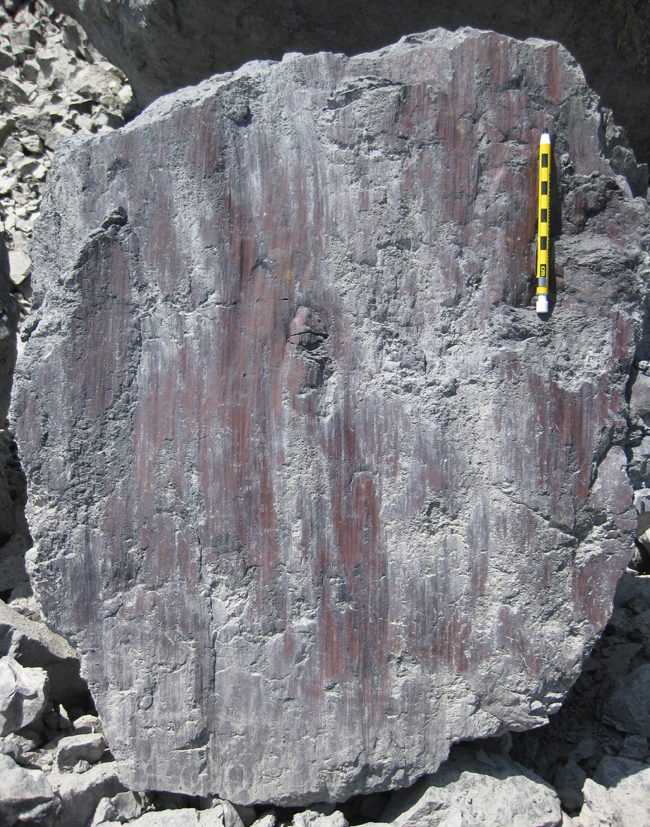
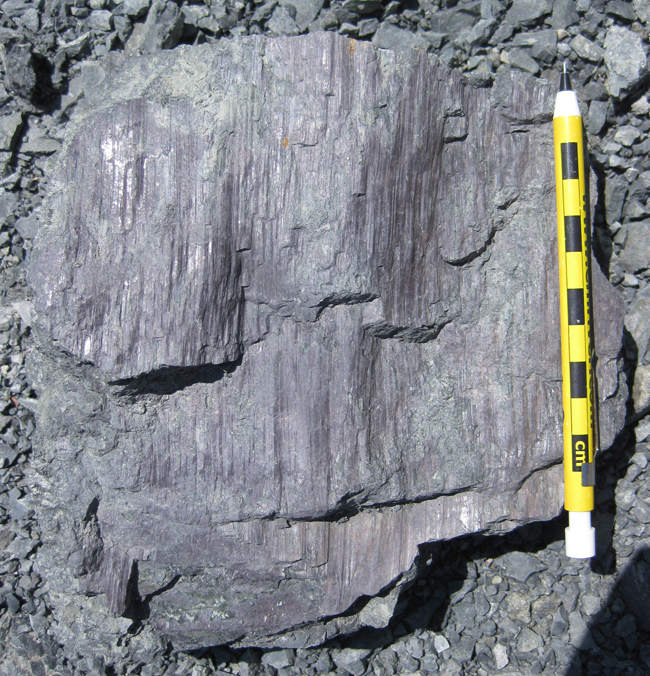
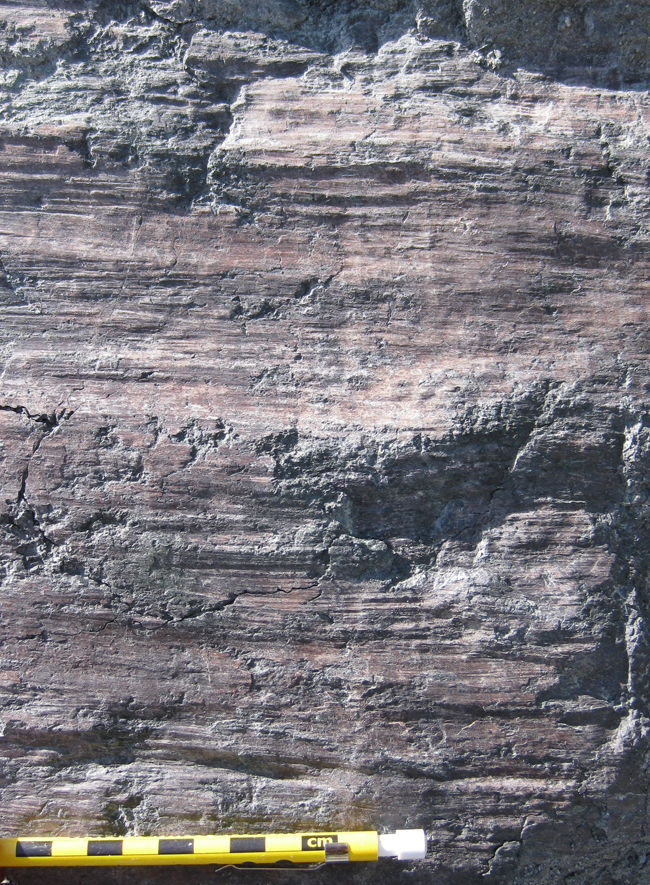
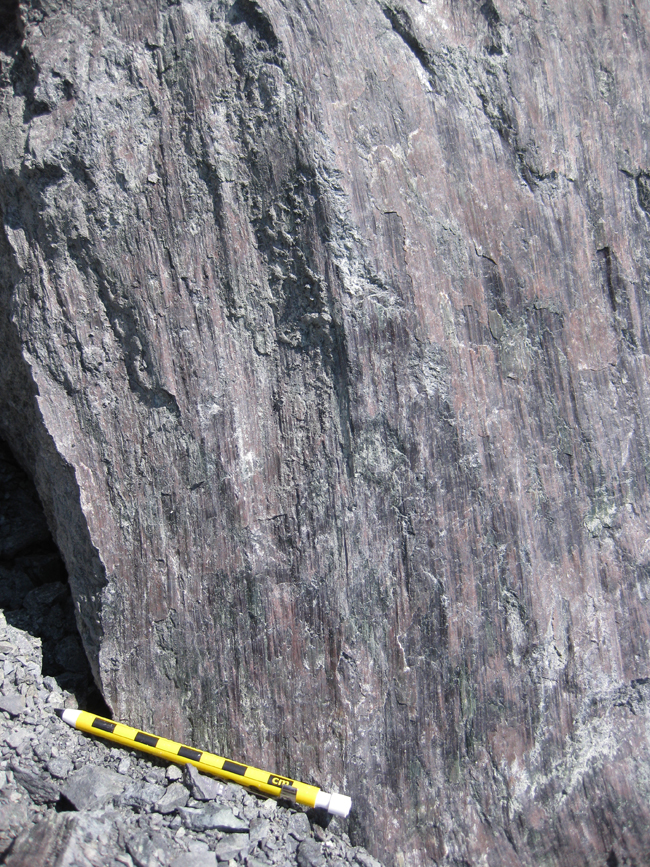
No sense of scale on this last one, because I didn’t feel safe edging up to the quarry wall (for fear of something falling off and popping me in the noggin), but this slickensided face is about 4 meters tall:
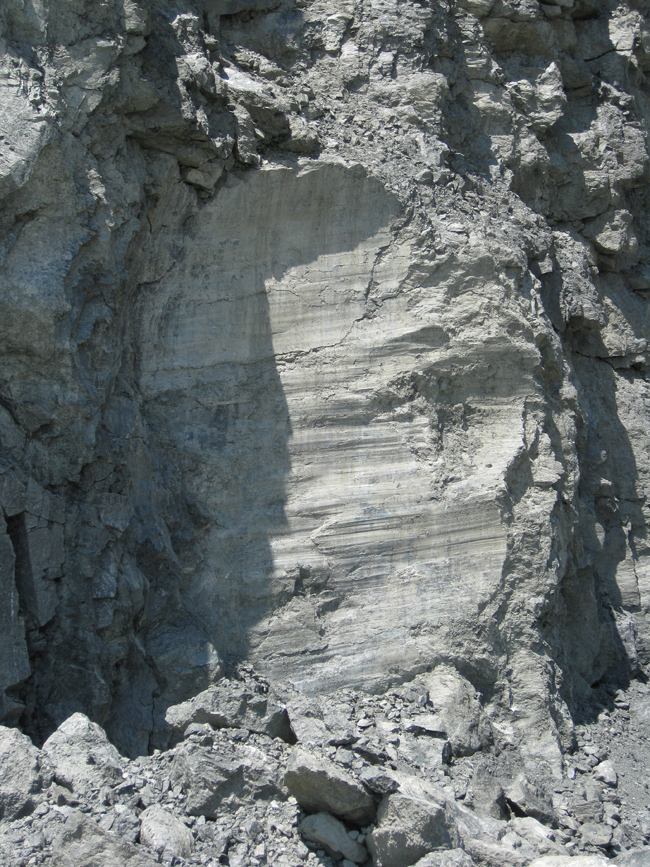
This last one is the only in situ shot of the slicks – and I hope you’ll notice what EPCC geology faculty Rob Rohrbaugh noticed immediately: all the slicks that were in place on the quarry walls showed horizontal lineations, which (a) must post-date the rocks’ formation, making the faulting Triassic or later, and (b) implies horizontal (right lateral or left lateral) motion on the faults. Also, it’s worth noting that (c) there were bazillions of exposures of the subhorizontal slicks on the quarry walls – this was a pervasive rather than isolated phenomenon.
This kinematic interpretation is hard to square with a neat and simple “extension causes normal faulting” scenario for the opening of the Culpeper Basin. Clearly, there must have been some syn- or post-rifting wrench component to the basin’s extension.
…It would be a great project for an Honors student to look into!
